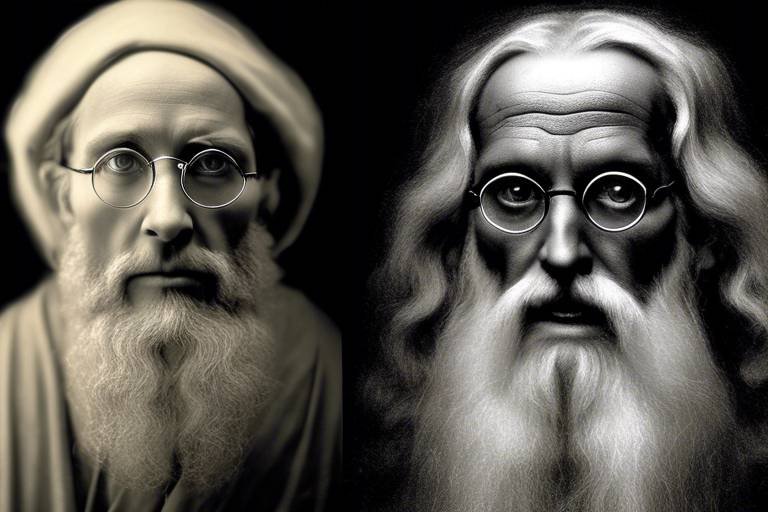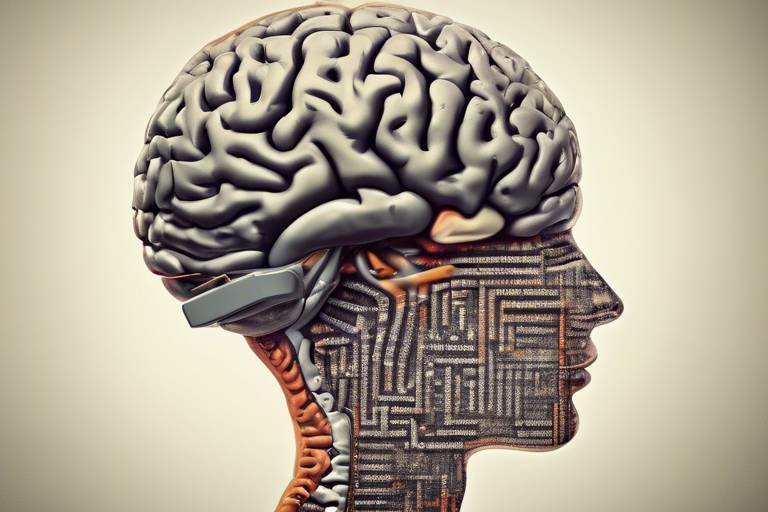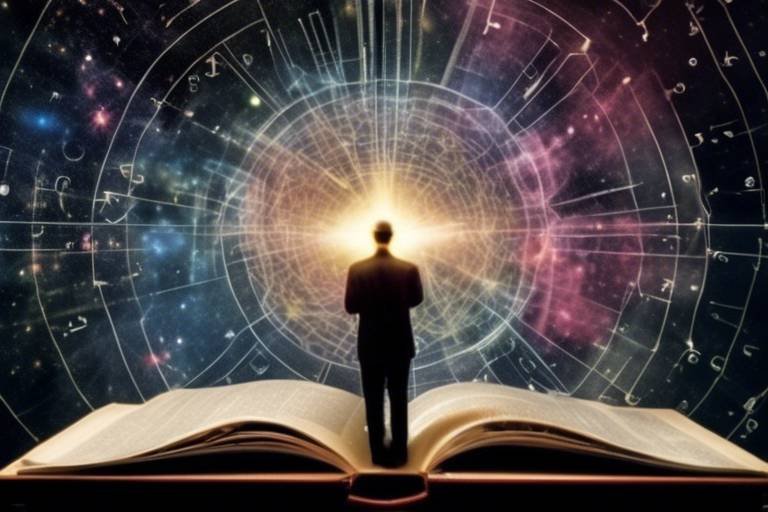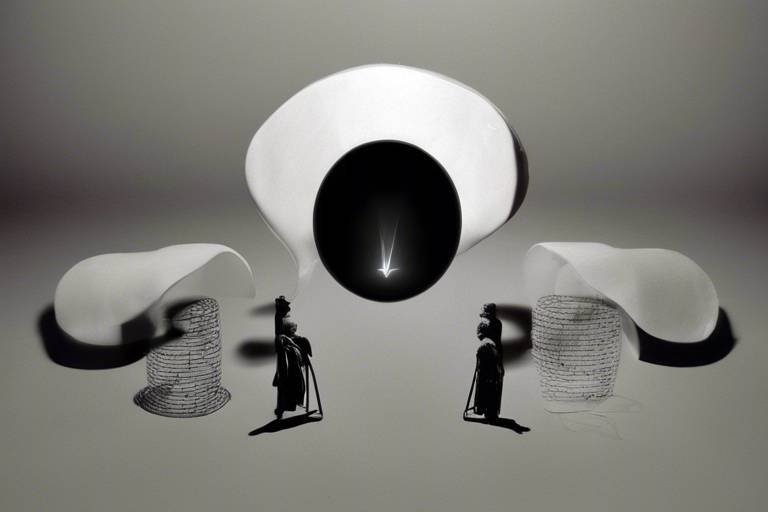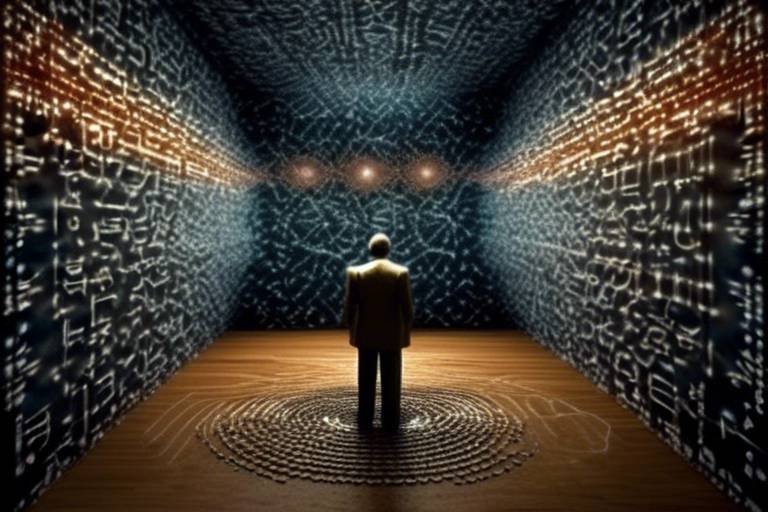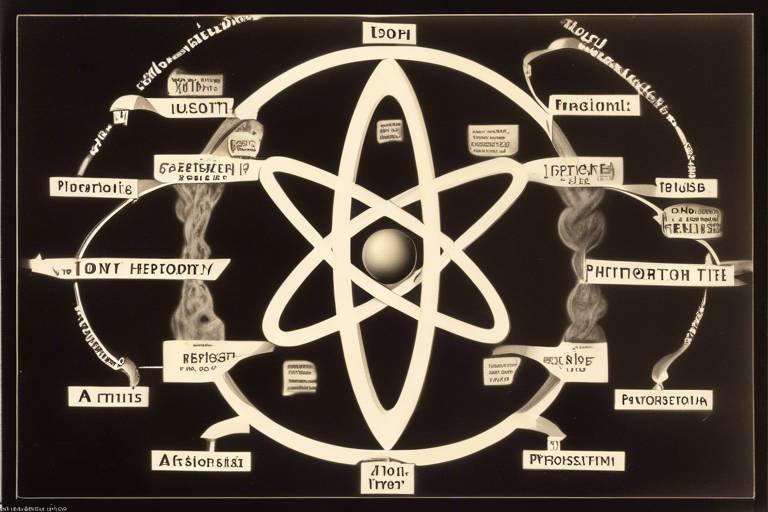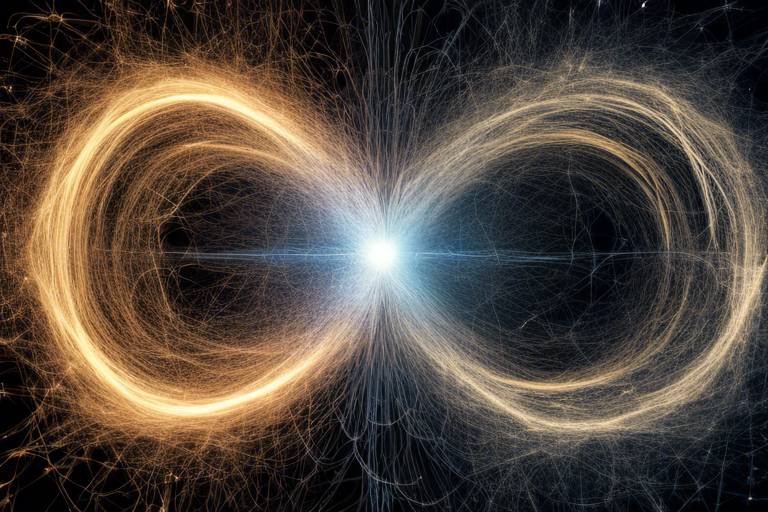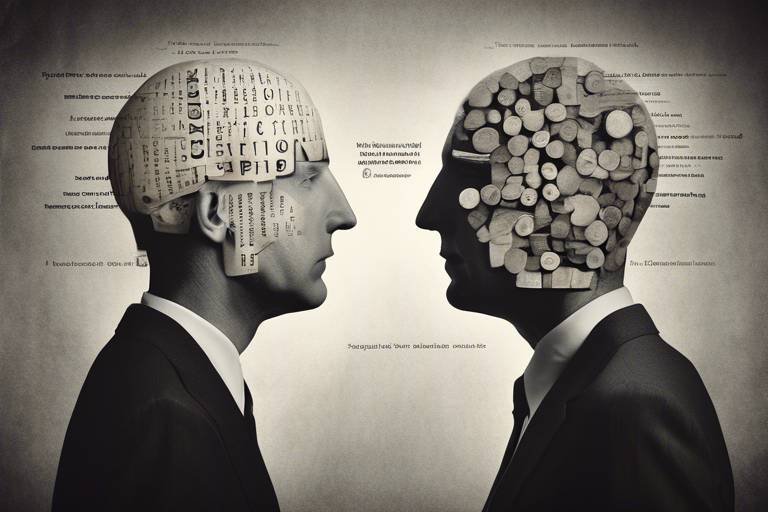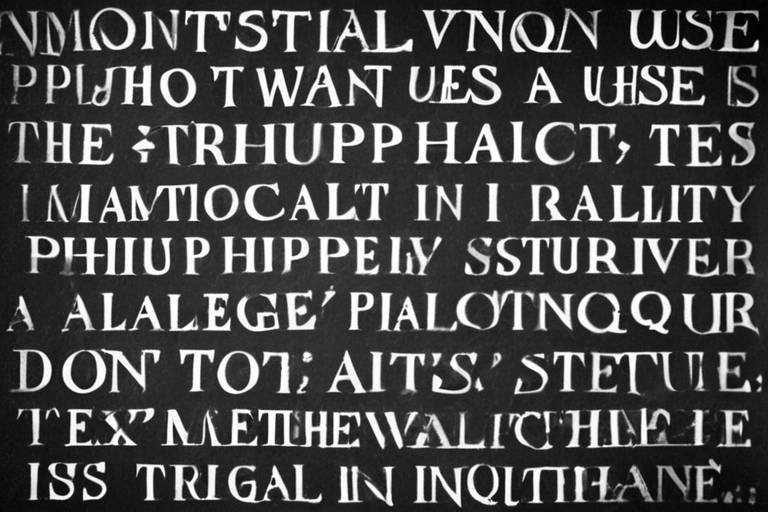From Religion to Science - The Philosophical Transformation
Throughout history, the way humans understand their existence has undergone a profound transformation, shifting from religious frameworks to scientific paradigms. This journey is not just a transition of ideas; it represents a revolutionary shift in human thought, where the quest for knowledge and understanding evolved from faith-based beliefs to evidence-based inquiry. Imagine standing at the crossroads of two powerful realms—one where divine intervention dictates the laws of nature and another where curiosity and observation pave the way for discovery. The philosophical transformation from religion to science is like watching a magnificent sunrise, illuminating the path of rational thought and empirical evidence.
In this exploration, we will delve into the historical context that set the stage for this transformation. The Renaissance, often heralded as the rebirth of classical knowledge, ignited a flame of inquiry that challenged the long-standing dominance of religious explanations. As the Enlightenment followed, the emphasis on reason and individualism further propelled humanity toward a new understanding of the universe, one that relied less on divine authority and more on human intellect. This period was like a breath of fresh air, invigorating the minds of thinkers and philosophers who dared to question the status quo.
Key figures emerged during this time, each contributing to the philosophical shift in their unique way. Thinkers like René Descartes, Galileo Galilei, and Immanuel Kant not only challenged existing beliefs but also laid the groundwork for modern philosophy and science. Their ideas acted like stepping stones across a turbulent river, guiding society from the shores of religious dogma to the land of rational inquiry. Descartes' methodical doubt encouraged individuals to scrutinize their beliefs, while Galileo's groundbreaking work in astronomy and physics showcased the power of observation and experimentation.
As we dive deeper into this transformation, we uncover the role of rationalism, which emerged as a significant force in philosophical thought. Rationalism emphasized the importance of reason as a primary tool for understanding the world, effectively challenging traditional religious narratives. It was a time when the mind was celebrated as a powerful instrument capable of unraveling the mysteries of existence. This shift marked a pivotal moment in human history, as people began to see the universe not as a divine creation but as a complex system governed by natural laws.
Moreover, the impact of empiricism cannot be overlooked. Empiricism placed a strong emphasis on sensory experience as the foundation of knowledge, further distancing philosophical thought from the constraints of religious dogma. By prioritizing observation and experimentation, thinkers began to construct a new understanding of nature that was grounded in reality rather than faith. This was akin to shedding old skin, allowing for new growth and understanding to flourish.
As science began to establish itself as a new paradigm for understanding reality, it fundamentally transformed human thought and reshaped societal beliefs about existence and purpose. The rise of scientific methodologies brought forth a new way of interpreting the world, one that was based on inquiry, evidence, and reasoning. It was like opening a window to a brighter world, where knowledge was no longer confined to ancient texts but was available to anyone willing to seek it out.
However, this transformation did not come without challenges. As science gained prominence, it posed significant challenges to religious authority, leading to conflicts that would resonate throughout history. The infamous trial of Galileo, for instance, exemplified the tensions between faith and reason, igniting debates that continue to this day. It was a dramatic clash of titans—science versus religion, each vying for the hearts and minds of humanity.
In the modern era, we witness the synthesis of scientific and philosophical thought, leading to new ways of understanding existence. Contemporary thinkers are now bridging the gap between science and philosophy, exploring the interconnectedness of these realms. This ongoing dialogue is essential, as it allows us to navigate the complexities of existence in a world where both science and spirituality can coexist.
- What is the main difference between religious and scientific thinking? Religious thinking often relies on faith and divine authority, while scientific thinking is based on evidence, observation, and reason.
- How did the Renaissance influence the shift from religion to science? The Renaissance revived classical knowledge and encouraged inquiry, challenging traditional religious explanations and fostering a spirit of exploration.
- Who are some key philosophers that contributed to this transformation? Notable figures include René Descartes, Galileo Galilei, and Immanuel Kant, each of whom played a crucial role in advancing rational and empirical thought.
- What role does empiricism play in modern science? Empiricism emphasizes the importance of sensory experience and observation in acquiring knowledge, forming the basis of the scientific method.

The Historical Context
Understanding the historical backdrop of religion and science is crucial for appreciating their transformation. The journey from religious frameworks to scientific paradigms did not happen overnight; it was a gradual evolution shaped by cultural, social, and intellectual movements. Two significant periods that played a pivotal role in influencing philosophical thought are the Renaissance and the Enlightenment.
The Renaissance, which spanned from the 14th to the 17th century, marked a profound shift in the way humans viewed themselves and their world. It was a time of rediscovery of classical knowledge and an awakening of human potential. Artists, writers, and thinkers began to challenge the established norms dictated by the Church, emphasizing individualism and the importance of human experience. This era laid the groundwork for questioning religious doctrines and exploring the natural world through observation and reason.
Following the Renaissance, the Enlightenment (17th to 19th centuries) further propelled this transformation. It championed the idea of reason as the primary source of authority and legitimacy. Thinkers like John Locke and Voltaire promoted ideas about human rights, democracy, and the separation of church and state. This intellectual movement encouraged people to think critically and independently, fostering a spirit of inquiry that would eventually lead to the scientific revolution.
During these periods, several key developments occurred that significantly affected the relationship between religion and science:
- Humanism: A focus on human potential and achievements, moving away from purely religious explanations of existence.
- Scientific Method: The establishment of systematic observation and experimentation as a means to acquire knowledge.
- Secularism: A growing trend to separate religious beliefs from scientific inquiry and governance.
This historical context is essential for understanding how philosophical thought transitioned from a primarily religious framework to one that embraced scientific inquiry and rationalism. The interplay between these two domains has shaped our current understanding of the universe, prompting us to ask deeper questions about existence, purpose, and the nature of reality itself.
In summary, the Renaissance and Enlightenment periods were crucial in shifting the paradigm from religious dogma to scientific exploration. They sparked a curiosity that encouraged individuals to seek knowledge through observation and reason rather than relying solely on faith. This transformation laid the groundwork for the profound philosophical shifts that followed and continue to influence our understanding today.

Key Philosophers and Thinkers
The journey from religious frameworks to scientific paradigms is paved with the profound insights of key philosophers and thinkers who dared to challenge the status quo. Their ideas not only reshaped the intellectual landscape of their time but also laid the groundwork for modern thought. Among these luminaries, René Descartes, Galileo Galilei, and Immanuel Kant stand out as pivotal figures whose contributions continue to resonate in contemporary philosophy and science.
Descartes, often heralded as the father of modern philosophy, introduced a radical approach to inquiry through his method of methodical doubt. His famous dictum, "Cogito, ergo sum" (I think, therefore I am), encapsulates the essence of his philosophy: the act of thinking is the foundation of knowledge. By questioning every belief until only the indubitable remained, Descartes paved the way for a new era of skepticism and rationalism. This approach encouraged individuals to rely on reason as a primary tool for understanding the world, challenging the long-held religious narratives that dominated thought for centuries.
Meanwhile, Galileo Galilei emerged as a beacon of empirical observation during the scientific revolution. His groundbreaking work in astronomy, particularly his improvements to the telescope, allowed him to make discoveries that directly contradicted the geocentric model endorsed by the Church. Galileo's insistence on empirical evidence and experimentation not only transformed the field of physics but also highlighted the tension between science and religious authority. The infamous trial of Galileo, where he was forced to recant his findings, serves as a poignant reminder of the struggles faced by those who dared to seek truth through observation rather than dogma.
In the wake of these revolutionary thinkers, Immanuel Kant emerged as a significant figure who sought to bridge the gap between reason and experience. His work, particularly in the realm of epistemology, emphasized the role of human perception in shaping knowledge. Kant argued that while we can never fully grasp the "thing-in-itself," our understanding is shaped by the structures of our own mind. This notion of the transcendental idealism not only influenced subsequent philosophical thought but also encouraged a more nuanced view of the relationship between science and metaphysics.
To better understand the contributions of these key philosophers, let's summarize their ideas in the following table:
| Philosopher | Key Contribution | Impact on Philosophy |
|---|---|---|
| René Descartes | Methodical Doubt | Foundation of modern skepticism and rationalism |
| Galileo Galilei | Empirical Observation | Challenged religious authority; established modern scientific methods |
| Immanuel Kant | Transcendental Idealism | Bridged the gap between rationalism and empiricism |
These thinkers, among others, played crucial roles in the philosophical transformation from religion to science. Their legacies remind us that the pursuit of knowledge is often fraught with challenges, yet it is through questioning and exploration that humanity has made its most significant advancements. As we continue to grapple with the implications of their ideas, we find ourselves at the intersection of faith and reason, forever exploring the vast expanse of understanding.
- Who was the first philosopher to doubt religious beliefs?
René Descartes is often credited with introducing methodical doubt, questioning established beliefs including those based on religion. - What was Galileo's major contribution to science?
Galileo's major contributions include his advancements in astronomy and physics, particularly his support for heliocentrism and the scientific method. - How did Kant influence modern philosophy?
Kant's ideas on transcendental idealism helped shape modern epistemology, emphasizing the role of human perception in understanding reality.

The Role of Rationalism
Rationalism emerged as a significant force during the philosophical transformation from religious to scientific paradigms. This intellectual movement emphasized the power of reason and critical thinking as the primary means of acquiring knowledge. Unlike the traditional reliance on faith and divine revelation, rationalism encouraged individuals to question established beliefs and seek understanding through logical deduction and empirical evidence. It was a revolutionary shift that challenged the very foundations of how humans interpreted the world around them.
At its core, rationalism posits that reason is the chief source of knowledge, and this idea gained traction during the Renaissance and the Enlightenment. Thinkers began to recognize that human beings possess the capacity to understand complex concepts through rational thought. This was a departure from the notion that knowledge was primarily bestowed by religious authorities. As a result, rationalism paved the way for a more skeptical approach to philosophical inquiry, urging individuals to rely on their intellect rather than dogma.
One of the most profound impacts of rationalism was its ability to inspire a new way of thinking about existence and the universe. Philosophers like René Descartes championed this movement, famously declaring, "Cogito, ergo sum" (I think, therefore I am). This assertion highlighted the importance of self-awareness and rational thought as the foundation for knowledge. Descartes’ methodical doubt encouraged individuals to question everything, even their own existence, leading to a deeper understanding of reality.
In addition to Descartes, other rationalists contributed significantly to this philosophical shift. For instance, Baruch Spinoza and Gottfried Wilhelm Leibniz expanded on rationalist ideas, proposing that the universe operates according to logical principles that can be understood through reason. Their works laid the groundwork for a more systematic approach to philosophy that aligned closely with the emerging scientific methodologies of the time.
The role of rationalism can be summarized through several key points:
- Emphasis on Reason: Rationalism prioritized human reason as the primary source of knowledge.
- Challenge to Dogma: It encouraged questioning traditional beliefs and religious doctrines.
- Foundation for Modern Science: Rationalist ideas contributed to the development of scientific methods based on observation and experimentation.
In conclusion, rationalism was not just a philosophical movement; it was a catalyst for change that transformed how humanity approached knowledge and understanding. By advocating for reason as the guiding principle, rationalism dismantled the barriers imposed by religious dogma and opened the door to a new era of inquiry. This transition laid the groundwork for the scientific revolution and continues to influence contemporary thought, reminding us that questioning and reasoning are vital in our quest for truth.
- What is rationalism? Rationalism is a philosophical approach that emphasizes reason as the primary source of knowledge, challenging traditional beliefs based on faith.
- Who were some key rationalist philosophers? Key rationalist philosophers include René Descartes, Baruch Spinoza, and Gottfried Wilhelm Leibniz.
- How did rationalism influence science? Rationalism laid the groundwork for modern scientific methods by promoting observation, experimentation, and logical reasoning over reliance on religious doctrine.

Descartes and Methodical Doubt
The philosopher René Descartes is often celebrated as the father of modern philosophy, and for good reason. His introduction of methodical doubt was revolutionary, acting as a catalyst for a profound shift in how we approach knowledge and understanding. Imagine standing at the edge of a vast forest, unsure of which path to take. Descartes' methodical doubt is akin to clearing away the underbrush to see the true landscape of thought. He believed that to establish a solid foundation for knowledge, one must first question everything that can be doubted.
Descartes proposed that by systematically doubting all beliefs—those based on senses, emotions, and even mathematical truths—one could arrive at something that was undeniably true. This process is famously encapsulated in his statement, "Cogito, ergo sum" (I think, therefore I am). Through this assertion, Descartes concluded that the very act of doubting was proof of his existence. This was a radical departure from the reliance on religious doctrine, which often provided answers without the need for personal inquiry.
To better understand Descartes' methodical doubt, consider the following key principles:
- Radical Skepticism: Descartes questioned the validity of all knowledge, including the existence of the physical world.
- Foundationalism: He sought to build knowledge on indubitable truths, laying a foundation that could withstand scrutiny.
- Rationalism: The emphasis was placed on reason as the primary source of knowledge, moving away from faith-based beliefs.
This philosophical approach not only influenced his contemporaries but also laid the groundwork for future scientific inquiry. By encouraging a culture of skepticism and inquiry, Descartes paved the way for thinkers like Galileo and Newton, who would further challenge the status quo. The implications of methodical doubt extend beyond philosophy; they resonate deeply in the scientific method, where hypotheses are rigorously tested and questioned before being accepted as truth.
However, the transition was not without its challenges. The Church, which held significant sway over intellectual life, viewed Descartes' approach with suspicion. His ideas prompted a re-evaluation of authority, leading to conflicts that would shape the trajectory of Western thought. The tension between faith and reason became a central theme, as Descartes' methodical doubt encouraged individuals to seek knowledge through observation and rational thought, rather than through religious dogma.
In conclusion, Descartes' methodical doubt is a cornerstone of philosophical transformation. It invites us to question, to think critically, and to seek knowledge through reason. This shift from unquestioning acceptance of religious beliefs to a more skeptical and inquisitive mindset marked a significant turning point in the evolution of human thought, setting the stage for the scientific advancements that followed.
- What is methodical doubt? Methodical doubt is a systematic process of doubting all beliefs to establish a foundation for true knowledge.
- How did Descartes influence modern philosophy? Descartes introduced skepticism and rationalism, encouraging individuals to question established beliefs and seek knowledge through reason.
- What is the significance of "Cogito, ergo sum"? This phrase encapsulates Descartes' belief that the act of thinking is proof of one's existence, serving as a foundational truth in his philosophy.

Galileo's Scientific Revolution
When we think about the Scientific Revolution, one name that inevitably pops up is Galileo Galilei. This Italian polymath didn’t just dabble in science; he ignited a fire that challenged the very core of religious authority and reshaped our understanding of the universe. Imagine a world where the stars were seen as divine, and the Earth was the center of everything—this was the prevailing belief before Galileo stepped onto the stage. His relentless pursuit of knowledge and empirical evidence marked a pivotal turning point in the history of science.
Galileo's most famous contribution was his use of the telescope to observe celestial bodies. Prior to his work, telescopes were rudimentary at best, but Galileo refined them and turned them into powerful tools for exploration. Through his lens, he discovered that the moon had a rough, uneven surface, challenging the notion of celestial perfection that was held by the Church. He also observed the four largest moons of Jupiter—Io, Europa, Ganymede, and Callisto—now known as the Galilean moons. This discovery was revolutionary; it suggested that not everything revolved around the Earth, a direct contradiction to the geocentric model endorsed by the Church.
Furthermore, Galileo's work on motion laid the groundwork for modern physics. He famously conducted experiments involving inclined planes and falling objects, leading to the formulation of the law of inertia. His assertion that the rate of fall of an object is independent of its mass challenged the Aristotelian view that heavier objects fall faster. This was a radical shift in thinking and showcased the importance of empirical evidence over philosophical speculation.
However, Galileo's revolutionary ideas did not come without a cost. The Church, feeling threatened by his findings, launched a campaign against him. In 1616, they declared heliocentrism—the idea that the Sun, not the Earth, is at the center of the universe—heretical. By 1633, Galileo was tried by the Roman Inquisition and forced to recant his views. He spent the rest of his life under house arrest. This conflict between science and religion highlighted a significant cultural shift. It raised questions about the role of authority in knowledge and the validity of personal observation versus established doctrine.
Despite the challenges he faced, Galileo's legacy is undeniable. His insistence on observation and experimentation laid the foundation for the scientific method, a systematic approach to inquiry that remains crucial in scientific exploration today. The ripples of his discoveries reached far beyond his lifetime, influencing generations of scientists and philosophers alike. As we reflect on his contributions, it’s clear that Galileo was not just a scientist; he was a beacon of rational thought in an era dominated by dogma.
In conclusion, Galileo's scientific revolution was not merely about the discovery of new facts; it was about a profound transformation in how humanity perceives the universe. His work encouraged people to question, to observe, and to think critically. This shift from blind faith to a reliance on evidence and reason was a defining moment in the history of human thought, paving the way for the Enlightenment and the modern age of science.

Impact of Empiricism
Empiricism, a philosophical movement that emphasizes knowledge derived from sensory experience, played a pivotal role in the evolution of thought during the transition from religious to scientific paradigms. This approach fundamentally challenged the traditional frameworks of understanding that were heavily reliant on religious dogma and metaphysical speculation. By advocating for knowledge based on observation and experimentation, empiricism laid the groundwork for a more objective and testable understanding of the world.
At the heart of empiricism is the idea that our senses are the primary source of knowledge. Think about it: when you touch something hot, you learn not to touch it again. This is a clear example of how direct experience informs our understanding. In contrast, religious doctrines often relied on faith and revelation, which were not always subject to verification. The shift towards empiricism allowed thinkers to question established beliefs and seek evidence, fostering a spirit of inquiry that would lead to groundbreaking discoveries.
One of the most significant impacts of empiricism was its contribution to the scientific method, a systematic approach to inquiry that emphasizes observation, experimentation, and the formulation of hypotheses. This method became the backbone of scientific investigation, enabling researchers to make discoveries that reshaped our understanding of the universe. For instance, the work of scientists like Isaac Newton and Charles Darwin relied heavily on empirical observation, leading to the formulation of laws of motion and the theory of evolution, respectively.
Furthermore, empiricism encouraged a culture of skepticism and critical thinking. It urged individuals to question not only the world around them but also the very foundations of knowledge itself. This questioning attitude is evident in the works of philosophers like David Hume, who argued that our beliefs should be grounded in empirical evidence rather than unfounded assumptions. Hume’s skepticism about causality and induction challenged the way people perceived relationships between events, further distancing philosophical thought from religious explanations.
As we delve deeper into the impact of empiricism, we can see that it also fostered a sense of democratization of knowledge. Unlike religious authorities who often controlled the narrative of truth, empiricism opened the door for anyone to observe and learn from the world. This shift not only empowered individuals but also led to advancements in various fields, including medicine, physics, and social sciences. The emphasis on observation and evidence paved the way for innovations that have profoundly affected human life.
In summary, the impact of empiricism on the philosophical transformation from religion to science cannot be overstated. It shifted the locus of knowledge from divine revelation to human observation, encouraging a more scientific and rational approach to understanding reality. This philosophical shift has had lasting implications, shaping the way we think, learn, and interact with the world around us.
- What is empiricism? Empiricism is a philosophical theory that asserts that knowledge comes primarily from sensory experience.
- How did empiricism influence the scientific method? Empiricism laid the groundwork for the scientific method by emphasizing observation and experimentation as key components of knowledge acquisition.
- Who were some key figures in the development of empiricism? Notable philosophers such as John Locke, George Berkeley, and David Hume were instrumental in shaping the principles of empiricism.
- What is the difference between empiricism and rationalism? While empiricism focuses on knowledge gained through sensory experience, rationalism emphasizes reason and intellectual deduction as the primary sources of knowledge.
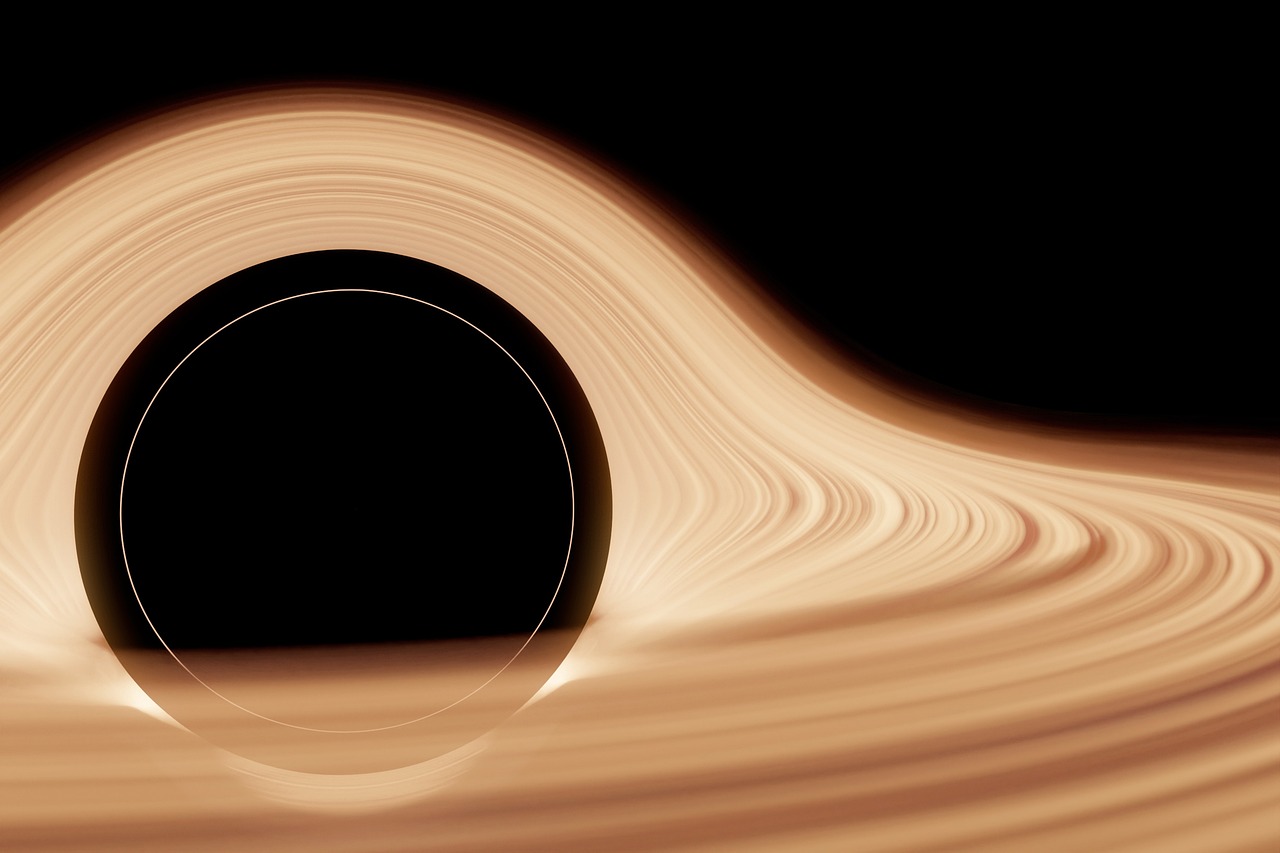
Science as a New Paradigm
As we navigate the intricate tapestry of human thought, the rise of science has undeniably established a new paradigm for understanding reality. But what does this really mean? Imagine the world as a vast, dark room filled with unknowns. For centuries, humanity relied on flickering candles of religious belief to light our way. However, with the advent of scientific inquiry, we have been handed a powerful flashlight, illuminating the shadows and revealing the intricate details of our universe.
The transition from a primarily religious worldview to a scientific one has not only transformed our understanding of the natural world but has also reshaped societal beliefs about existence and purpose. In this new paradigm, science has become the lens through which we examine life’s biggest questions. No longer are we solely dependent on ancient texts or spiritual leaders for answers; instead, we turn to empirical evidence and rational thought.
One of the most significant aspects of this scientific revolution is its methodology. The scientific method—characterized by observation, experimentation, and repeatability—has replaced dogmatic assertions with a dynamic process of inquiry. This shift has allowed for a more nuanced understanding of nature, one that embraces uncertainty and change. As a result, we have seen remarkable advancements in technology, medicine, and our overall grasp of the universe.
However, the rise of science has not come without its challenges. The conflicts between scientific discoveries and religious doctrines have often sparked intense debates and, at times, outright hostility. To illustrate this, consider the infamous trial of Galileo Galilei, which stands as a poignant reminder of the tensions that can arise when faith and reason collide. Galileo's advocacy for heliocentrism not only challenged the prevailing geocentric view endorsed by the Church but also ignited a broader discussion about the limits of religious authority in matters of empirical truth.
Despite these challenges, the integration of scientific thought into our worldview has paved the way for a richer understanding of existence. Today, thinkers like Albert Einstein and Stephen Hawking bridge the gap between science and philosophy, exploring concepts that were once the exclusive domain of theologians. They remind us that while science seeks to explain the "how," philosophy often grapples with the "why," creating a dialogue that enriches both fields.
In essence, the emergence of science as a new paradigm has not only altered our approach to knowledge but has also redefined our place in the cosmos. It invites us to question, to explore, and to embrace the unknown with a sense of wonder. As we continue to push the boundaries of what we know, we must also acknowledge the profound philosophical implications of our scientific endeavors.
- What is the significance of the scientific method? The scientific method is crucial because it provides a systematic way to explore observations, test hypotheses, and validate findings, ensuring that conclusions are based on evidence rather than belief.
- How has science challenged religious beliefs? Science has challenged religious beliefs by providing alternative explanations for natural phenomena that were once attributed solely to divine intervention, leading to conflicts over authority and interpretation.
- Can science and religion coexist? Many believe that science and religion can coexist by addressing different questions; science focuses on the "how," while religion often seeks to answer the "why." This perspective fosters a dialogue between the two realms.

Challenges to Religious Authority
The rise of science during the Renaissance and Enlightenment periods significantly challenged the authority of religious institutions. As thinkers like Galileo and Newton began to unveil the mysteries of the universe through observation and experimentation, the once unassailable doctrines of the Church faced scrutiny and doubt. This conflict between science and religion was not merely a battle of ideas; it was a seismic shift in the foundations of knowledge itself. People began to ask, "If the Church can be wrong about the cosmos, what else might it be wrong about?" This question ignited a profound philosophical inquiry that would alter the course of human thought.
One of the most notable conflicts was the infamous trial of Galileo Galilei in 1633. Galileo's support for the heliocentric model—proposing that the Earth revolves around the Sun—directly contradicted the Church's geocentric viewpoint, which placed Earth at the center of the universe. His subsequent trial not only led to his house arrest but also served as a cautionary tale for other scientists. The Church's reaction was a desperate attempt to maintain its authority in a rapidly changing intellectual landscape. This tension between faith and reason sparked debates that continue to resonate today.
Moreover, the challenges to religious authority were not limited to individual cases like Galileo's. The scientific method itself, with its emphasis on observation, hypothesis, and experimentation, began to erode the credibility of religious explanations for natural phenomena. As more discoveries were made—such as the laws of motion and the principles of gravity—people started to view the world through a lens of reason and evidence rather than faith alone. This shift is often illustrated by the table below, which contrasts key scientific advancements with their religious implications:
| Scientific Advancement | Religious Implication |
|---|---|
| Heliocentrism (Galileo) | Undermined the Church's view of Earth as the universe's center |
| Laws of Motion (Newton) | Challenged the notion of divine intervention in natural processes |
| Evolution (Darwin) | Contradicted literal interpretations of creation in religious texts |
As these scientific theories gained traction, they not only reshaped individual beliefs but also influenced broader societal values. The idea that knowledge could be derived from empirical evidence rather than divine revelation encouraged a more secular approach to understanding existence. Philosophers like Immanuel Kant would later argue that the use of reason should be paramount in all inquiries, further distancing philosophical thought from religious dogma. This intellectual evolution raised new questions about the role of faith in a world increasingly dominated by scientific inquiry.
In conclusion, the challenges to religious authority were pivotal in the philosophical transformation from a predominantly religious worldview to one where science and reason took precedence. This shift was not without its controversies and conflicts, but it laid the groundwork for modern thought, encouraging individuals to seek knowledge through observation and inquiry rather than solely through faith. As we continue to navigate the complexities of existence, the legacy of this battle between science and religion remains a crucial part of our intellectual heritage.
- What was the main conflict between science and religion during the Renaissance?
The main conflict revolved around the heliocentric model proposed by Galileo, which challenged the Church's geocentric view. - How did the scientific method change philosophical thought?
The scientific method emphasized observation and evidence, leading to a more secular approach to understanding the world. - Who were some key figures in the challenges to religious authority?
Key figures included Galileo Galilei, Isaac Newton, and later, Charles Darwin, each of whom made significant contributions that contradicted religious explanations.

The Modern Synthesis
The Modern Synthesis represents a profound evolution in the interplay between science and philosophy, creating a rich tapestry that weaves together insights from both domains. Imagine standing at the crossroads of **science** and **philosophy**, where each path offers a unique perspective on existence. This synthesis is not merely a blending of ideas; it is a dynamic dialogue that challenges us to reconsider our understanding of reality. In this era, thinkers like Albert Einstein and Stephen Hawking have emerged, bridging the gap between the scientific and the philosophical, urging us to explore the universe in ways that were once unimaginable.
One of the most fascinating aspects of the Modern Synthesis is how it invites us to question the very fabric of our beliefs. For instance, Einstein's theory of relativity not only revolutionized physics but also sparked philosophical debates about the nature of time and space. His famous quote, “Time is an illusion,” pushes us to rethink our daily experiences and perceptions. Similarly, Hawking's exploration of black holes and the origins of the universe challenges traditional metaphysical concepts, compelling us to confront the limits of human understanding.
Moreover, this synthesis has led to the emergence of interdisciplinary fields that blend scientific inquiry with philosophical reflection. Consider cognitive science, which examines the nature of thought and consciousness by integrating psychology, neuroscience, and philosophy. This field exemplifies how the Modern Synthesis encourages a holistic approach to understanding complex phenomena. By drawing from various disciplines, we gain a more nuanced perspective on questions that have puzzled humanity for centuries.
In addition to cognitive science, other areas such as bioethics and philosophy of science have flourished, reflecting the ongoing dialogue between scientific advancements and ethical considerations. For example, the rapid progress in genetic engineering raises profound questions about what it means to be human. Should we play God with our genes? This ethical dilemma illustrates the need for philosophical frameworks to guide scientific exploration, ensuring that our advancements align with our values and societal norms.
As we navigate this modern landscape, it is essential to recognize that the synthesis of science and philosophy is not without its challenges. Conflicts can arise when scientific discoveries clash with established religious beliefs, leading to heated debates and societal tensions. The infamous trial of Galileo serves as a historical reminder of these struggles, where the pursuit of knowledge was met with resistance from religious authorities. Yet, it is precisely these challenges that fuel the ongoing conversation between faith and reason, pushing us to seek a more integrated understanding of our existence.
In conclusion, the Modern Synthesis is a testament to the power of human thought—a celebration of our curiosity and desire to understand the universe. By embracing both scientific inquiry and philosophical reflection, we open ourselves to new possibilities and insights. As we continue to explore this synthesis, we must remain vigilant, asking ourselves: How can we ensure that our pursuit of knowledge enriches our understanding of life rather than diminishes it? The journey is ongoing, and the answers may be as complex as the questions themselves.
- What is the Modern Synthesis?
The Modern Synthesis refers to the integration of scientific and philosophical thought, leading to a deeper understanding of existence and reality.
- Who are some key figures in the Modern Synthesis?
Notable thinkers include Albert Einstein and Stephen Hawking, who have contributed significantly to bridging science and philosophy.
- How does the Modern Synthesis impact our understanding of ethics?
It raises important ethical questions, particularly in fields like bioethics, where scientific advancements challenge our moral frameworks.
- What challenges does the Modern Synthesis face?
Conflicts can arise when scientific discoveries contradict established religious beliefs, leading to debates about faith and reason.
Frequently Asked Questions
- What is the main focus of the article?
The article explores the fascinating journey of thought from religious frameworks to scientific paradigms. It highlights key philosophical shifts that have shaped our understanding of the world over time.
- Why is historical context important in understanding the shift from religion to science?
Understanding the historical context is crucial because it provides insights into the significant periods, like the Renaissance and Enlightenment, that influenced philosophical thought and the evolution of ideas.
- Who are some key philosophers mentioned in the article?
Some pivotal philosophers include René Descartes, Galileo Galilei, and Immanuel Kant. Their contributions were instrumental in transitioning thought from religious to scientific perspectives.
- What role did rationalism play in this transformation?
Rationalism emerged as a significant force by advocating for reason as a primary tool for understanding the world, challenging traditional religious narratives and paving the way for modern scientific inquiry.
- How did Descartes contribute to the shift in philosophical thought?
René Descartes introduced methodical doubt, a technique that encouraged questioning established beliefs. This approach laid the groundwork for skepticism and modern scientific inquiry.
- What was Galileo's impact on science and religion?
Galileo's work in astronomy and physics challenged the authority of the church, exemplifying the transition to empirical observation and experimentation during the scientific revolution.
- What is empiricism and how did it affect philosophical thought?
Empiricism emphasizes sensory experience as the foundation of knowledge. This approach distanced philosophical thought from religious dogma, fostering a new understanding of nature based on observation.
- How did science establish a new paradigm for understanding reality?
The rise of science established methodologies that transformed human thought and reshaped societal beliefs about existence and purpose, moving away from purely religious explanations.
- What challenges did science pose to religious authority?
As science gained prominence, it posed significant challenges to religious authority, leading to conflicts such as the infamous trial of Galileo, which had profound implications for faith and reason.
- What is the modern synthesis in philosophy and science?
The modern synthesis refers to the integration of scientific and philosophical thought, leading to new ways of understanding existence, as contemporary thinkers bridge the gap between these two realms.

